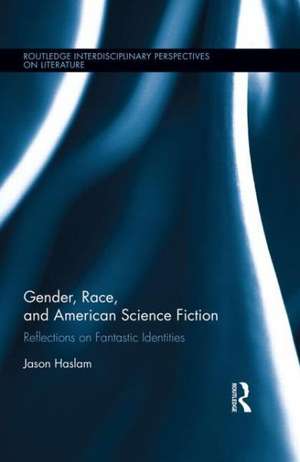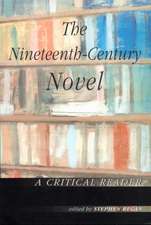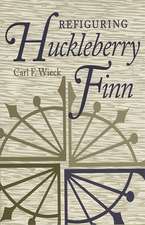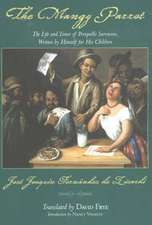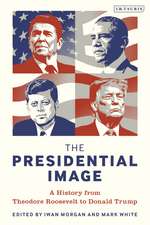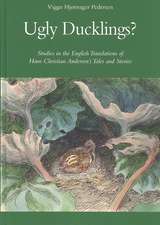Gender, Race, and American Science Fiction: Reflections on Fantastic Identities: Routledge Interdisciplinary Perspectives on Literature
Autor Jason Haslamen Limba Engleză Hardback – mai 2015
| Toate formatele și edițiile | Preț | Express |
|---|---|---|
| Paperback (1) | 312.43 lei 6-8 săpt. | |
| Taylor & Francis – 6 feb 2018 | 312.43 lei 6-8 săpt. | |
| Hardback (1) | 1109.99 lei 6-8 săpt. | |
| Taylor & Francis – mai 2015 | 1109.99 lei 6-8 săpt. |
Din seria Routledge Interdisciplinary Perspectives on Literature
-
 Preț: 277.97 lei
Preț: 277.97 lei -
 Preț: 311.26 lei
Preț: 311.26 lei -
 Preț: 371.71 lei
Preț: 371.71 lei -
 Preț: 339.94 lei
Preț: 339.94 lei -
 Preț: 311.56 lei
Preț: 311.56 lei -
 Preț: 309.27 lei
Preț: 309.27 lei -
 Preț: 310.29 lei
Preț: 310.29 lei -
 Preț: 310.60 lei
Preț: 310.60 lei - 9%
 Preț: 1007.22 lei
Preț: 1007.22 lei -
 Preț: 371.71 lei
Preț: 371.71 lei - 26%
 Preț: 819.48 lei
Preț: 819.48 lei -
 Preț: 442.68 lei
Preț: 442.68 lei - 18%
 Preț: 1110.74 lei
Preț: 1110.74 lei - 26%
 Preț: 877.19 lei
Preț: 877.19 lei - 18%
 Preț: 1117.43 lei
Preț: 1117.43 lei -
 Preț: 486.38 lei
Preț: 486.38 lei - 18%
 Preț: 699.96 lei
Preț: 699.96 lei - 18%
 Preț: 1063.31 lei
Preț: 1063.31 lei - 18%
 Preț: 707.86 lei
Preț: 707.86 lei - 18%
 Preț: 1117.07 lei
Preț: 1117.07 lei -
 Preț: 488.29 lei
Preț: 488.29 lei - 18%
 Preț: 1057.05 lei
Preț: 1057.05 lei -
 Preț: 383.63 lei
Preț: 383.63 lei - 18%
 Preț: 1109.99 lei
Preț: 1109.99 lei - 18%
 Preț: 1112.34 lei
Preț: 1112.34 lei - 5%
 Preț: 1223.90 lei
Preț: 1223.90 lei - 18%
 Preț: 1036.35 lei
Preț: 1036.35 lei - 18%
 Preț: 1057.89 lei
Preț: 1057.89 lei -
 Preț: 448.49 lei
Preț: 448.49 lei - 18%
 Preț: 1109.99 lei
Preț: 1109.99 lei - 18%
 Preț: 1052.35 lei
Preț: 1052.35 lei - 18%
 Preț: 1118.82 lei
Preț: 1118.82 lei - 18%
 Preț: 1057.09 lei
Preț: 1057.09 lei - 26%
 Preț: 822.01 lei
Preț: 822.01 lei - 18%
 Preț: 1053.16 lei
Preț: 1053.16 lei - 18%
 Preț: 1112.90 lei
Preț: 1112.90 lei - 18%
 Preț: 1054.27 lei
Preț: 1054.27 lei - 18%
 Preț: 1112.34 lei
Preț: 1112.34 lei - 5%
 Preț: 1222.85 lei
Preț: 1222.85 lei - 18%
 Preț: 1110.74 lei
Preț: 1110.74 lei - 18%
 Preț: 1118.82 lei
Preț: 1118.82 lei - 18%
 Preț: 1112.21 lei
Preț: 1112.21 lei - 18%
 Preț: 1058.38 lei
Preț: 1058.38 lei - 18%
 Preț: 1059.84 lei
Preț: 1059.84 lei
Preț: 1109.99 lei
Preț vechi: 1353.64 lei
-18% Nou
Puncte Express: 1665
Preț estimativ în valută:
212.40€ • 222.21$ • 176.44£
212.40€ • 222.21$ • 176.44£
Carte tipărită la comandă
Livrare economică 03-17 aprilie
Preluare comenzi: 021 569.72.76
Specificații
ISBN-13: 9781138827936
ISBN-10: 1138827932
Pagini: 248
Dimensiuni: 152 x 229 x 18 mm
Greutate: 0.48 kg
Ediția:1
Editura: Taylor & Francis
Colecția Routledge
Seria Routledge Interdisciplinary Perspectives on Literature
Locul publicării:Oxford, United Kingdom
ISBN-10: 1138827932
Pagini: 248
Dimensiuni: 152 x 229 x 18 mm
Greutate: 0.48 kg
Ediția:1
Editura: Taylor & Francis
Colecția Routledge
Seria Routledge Interdisciplinary Perspectives on Literature
Locul publicării:Oxford, United Kingdom
Public țintă
Postgraduate and UndergraduateCuprins
Introduction: "Kindred Mysteries": The Fantastic Identities of SF Part I: Race/Gender/Science/Fiction 1. "The races of mankind": The Race of Gender in "The Birth-mark" and Mizora 2. The Whiteness of Manly Pulp from Tarzan’s Jungle to Buck Rogers’ Phalectrocentrism Part II: Virtual Whiteness 3. The Möbius Strip of Identity and Privilege in Black No More 4. Coded Discourse: Romancing the (Electronic) Shadow in The Matrix Part III: Muting Utopia 5. Bridging Divides in The Santaroga Barrier and All Tomorrow's Parties 6. Octavia Butler’s Exceptional Minds, Collective Identities, and the Moynihan Report Afterword: The Robot’s Howl: Fritz Lang, Allen Ginsberg, and SF as Death Drive
Notă biografică
Jason Haslam is Associate Professor in the Department of English at Dalhousie University, Canada
Recenzii
Awarded an honorable mention for the 2016 Robert K. Martin Book Prize competition
Descriere
This book focusses on gender and race, and their representation in American SF, from the 19C to the present, and in forms including literature and film. It explores how SF provides a rich medium for both the preservation of and challenges to dominant mythologies of gender and race. Defining SF linguistically and culturally, it shows that SF not only illuminates the cultural and social histories of gender and race, but so too can it intervene in those histories, and highlight the ruptures present within them. Arguing that SF must become central to discussions of identity, this book contributes to SF, American literature and culture, Whiteness Studies, and critical gender and race studies.
